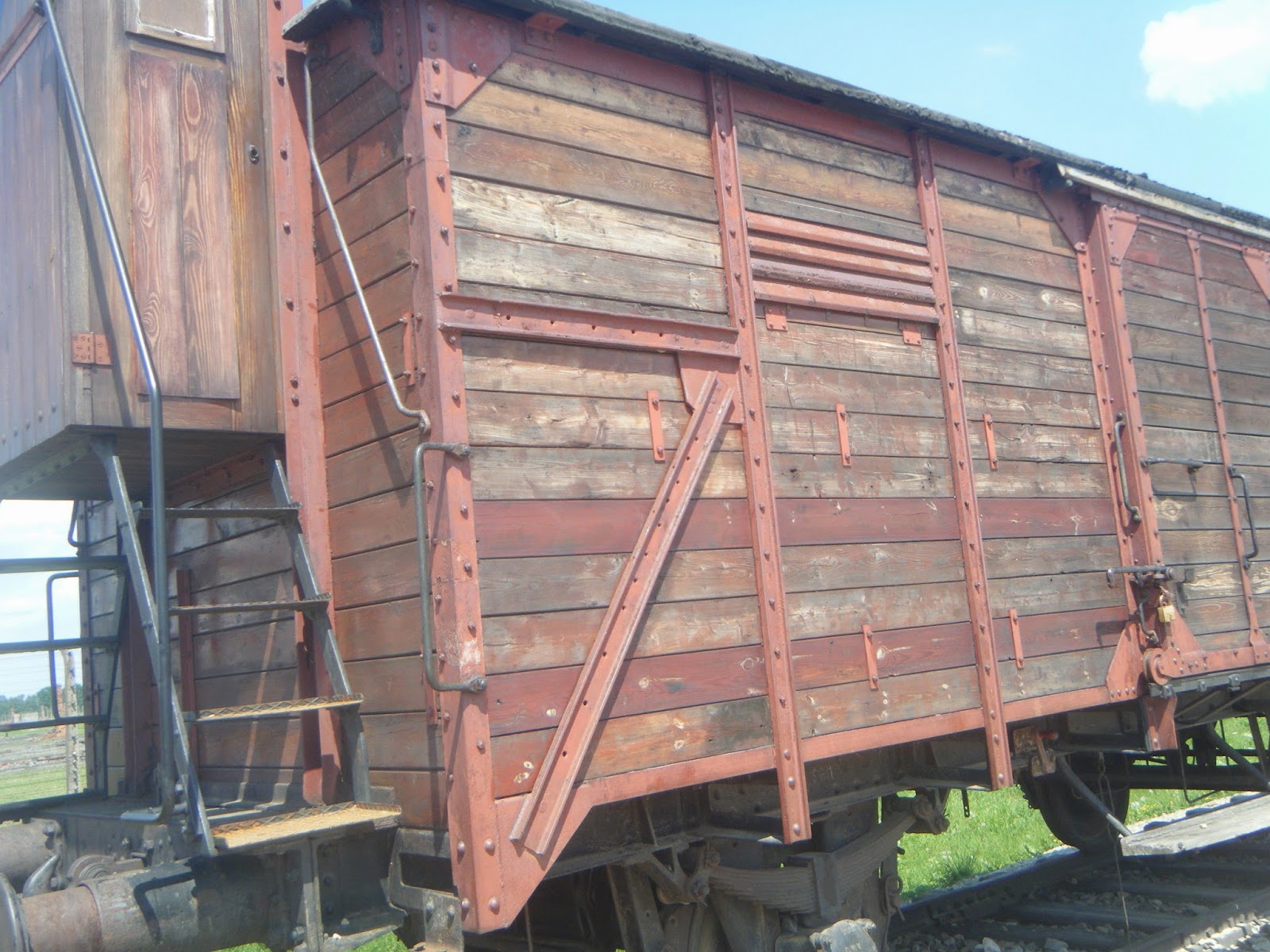Hello! I’m Rowan Meredith, and I’ve had the incredible opportunity to participate in three different programs overseas this year, and now to write about my adventures. I’ve been on the road for just under four months, and have another four to go. In May, I was a part of the 2014 I-witness Holocaust Field School with the Germanic Studies department at UVic, and spent three weeks exploring Germany, Austria and Poland in an effort to understand how the Holocaust is memorialized in Central Europe. I then stayed in Poland to work as an intern at the Auschwitz-Birkenau State Museum for the remainder of the summer. I’ve just arrived in Marburg, Germany, where I will be studying the German language until December. My blog will mainly be centered around Marburg, but this introductory post will give you an idea of what I’ve been doing for the last four months (so forgive me if it’s long).
I-Witness: Observation, Experience, Understanding
In May, the I-Witness program began with a week of classes held on campus at UVic. Our group spent every day listening to survivor testimonies, discussing a broad range of readings, giving presentations about the very sites we were to see, and getting to know one another. We then flew off to Berlin, where we began our tour, visiting memorials, meeting with students from each of the countries we visited, and discussing our rapidly shifting opinions of the sites. The memorials in real life were very different from the images we had seen in our readings, and we experienced considerable emotion in examining them, often finding ourselves unable to process our thoughts for at least 24 hours after an experience. Our biases were exposed, especially in our encounters with other student groups, and our networks of belief began to break down. Inner conflict was often the theme of the day.
The understanding this experience gave our group about the Holocaust was by no means black and white, and was among the most meaningful “classroom” experiences possible. The program has inspired me to continue to work against present-day genocide and human rights violations, and is an experience I would recommend to anyone with a passion in these fields, regardless of background.
Auschwitz-Birkenau State Museum: Participation
At the end of May, I left the I-witness group and moved to Oswiecim, Poland, to participate in an international co-op term at the Auschwitz-Birkenau State Museum. The feeling at the museum is in stark contrast to what I had experienced so far: instead of the wide range of emotions of discovering the Holocaust sites for the first time, the employees at the museum experienced never-ending curiosity, and worked to make the emotion real for camp visitors. Nevertheless, working at the museum could be extremely eerie at times, especially as volunteers are housed in the office of the former camp commandant Rudolph Höss. As a volunteer in the Collections department, I had a wide range of duties, from creating identification cards for newly retrieved artifacts, to transcribing videos of survivor testimonies, to scanning and photocopying historical documents. This program allowed me to become a participant in the memorialization process.
Unfortunately, complications with my visa arose which required me to leave my work term early and return to Canada. The Polish Embassy in Vancouver gave me mistaken information on several occasions, leading me to believe that I would not require a visa for my co-op term, even though I was to spend more than 90 days in Europe in total. When in Europe, it was impossible to obtain the needed visa, so I had to leave the country, only to return two weeks later and apply for a rush student visa in Germany. If you are going to be participating in a similar program lasting more than 90 days (including any travel time outside Poland), I highly recommend you get in contact with the Canadian embassy in Poland, or with another embassy in Europe, for more accurate information.
For prospective students looking to take part in a work term at the Auschwitz-Birkenau State Museum, I would certainly encourage you. The experience can be deeply satisfying, especially if you use your free time (as the workload at the museum is relatively light) to explore the nearby cities and immerse yourself in the Polish culture. Work at the museum is a deeply moving experience, and is likely to inspire your own research. Knowledge of either Polish or German would be valuable, as these are the primary languages spoken at the museum and documented in the archives, but I found that Russian was also helpful, and many people do speak English. Do not count on French as a back-up.
